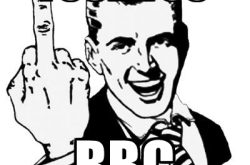Romer follows up his critique The one reaction that puzzles me goes something like this: “Romer’s critique of RBC models is dated; we’ve known all along that those models make no sense.” If we know that the RBC model makes no sense, why was it left as the core of the DSGE model? Those phlogiston shocks are still there. Now they are mixed together with a bunch of other made-up shocks. Moreover, I see no reason to be confident about what we will learn if some...
Read More »Wren-Lewis trivializing Romer’s critique
Wren-Lewis trivializing Romer’s critique As yours truly wrote last week, there has been much discussion going on in the economics academia on Paul Romer’s recent critique of ‘modern’ macroeconomics. Now Oxford professor Simon Wren-Lewis has a blog post up arguing that Romer’s critique is unfair and wide of the mark in places … Paul’s discussion of real effects from monetary policy, and the insistence on productivity shocks as business cycle drivers, is...
Read More »History of Modern Monetary Theory
History of Modern Monetary Theory [embedded content]
Read More »A skyrocketing economics blog
A skyrocketing economics blog Tired of the idea of an infallible mainstream neoclassical economics and its perpetuation of spoon-fed orthodoxy, yours truly launched this blog five years ago. The number of visitors has increased steadily, and with now having had my posts viewed more than 3 million times, I have to admit of still being — given the rather wonkish character of the blog, with posts mostly on economic theory, statistics, econometrics, theory of...
Read More »Chicago drivel — a sure way to get a ‘Nobel prize’ in economics
Chicago drivel — a sure way to get a ‘Nobel prize’ in economics In 2007 Thomas Sargent gave a graduation speech at University of California at Berkeley, giving the grads “a short list of valuable lessons that our beautiful subject teaches”: 1. Many things that are desirable are not feasible. 2. Individuals and communities face trade-offs. 3. Other people have more information about their abilities, their efforts, and their preferences than you do. 4. Everyone...
Read More »Why critique in economics is so important
Why critique in economics is so important Some of the economists who agree about the state of macro in private conversations will not say so in public. This is consistent with the explanation based on different prices. Yet some of them also discourage me from disagreeing openly, which calls for some other explanation. They may feel that they will pay a price too if they have to witness the unpleasant reaction that criticism of a revered leader provokes....
Read More »Jensen’s inequality (wonkish)
[embedded content]
Read More »Economists’ infatuation with immense assumptions
Economists’ infatuation with immense assumptions Peter Dorman is one of those rare economists that it is always a pleasure to read. Here his critical eye is focussed on economists’ infatuation with homogeneity and averages: You may feel a gnawing discomfort with the way economists use statistical techniques. Ostensibly they focus on the difference between people, countries or whatever the units of observation happen to be, but they nevertheless seem to...
Read More »Lazy theorizing and useless macroeconomics
Lazy theorizing and useless macroeconomics In a new, extremely well-written, brave, and interesting article, Paul Romer goes to frontal attack on the theories that has put macroeconomics on a path of ‘intellectual regress’ for three decades now: Macroeconomists got comfortable with the idea that fluctuations in macroeconomic aggregates are caused by imaginary shocks, instead of actions that people take, after Kydland and Prescott (1982) launched the real...
Read More »Proper use of math
Proper use of math Balliol Croft, Cambridge 27. ii. 06 My dear Bowley, I have not been able to lay my hands on any notes as to Mathematico-economics that would be of any use to you: and I have very indistinct memories of what I used to think on the subject. I never read mathematics now: in fact I have forgotten even how to integrate a good many things. But I know I had a growing feeling in the later years of my work at the subject that a good mathematical...
Read More » Lars P. Syll
Lars P. Syll








